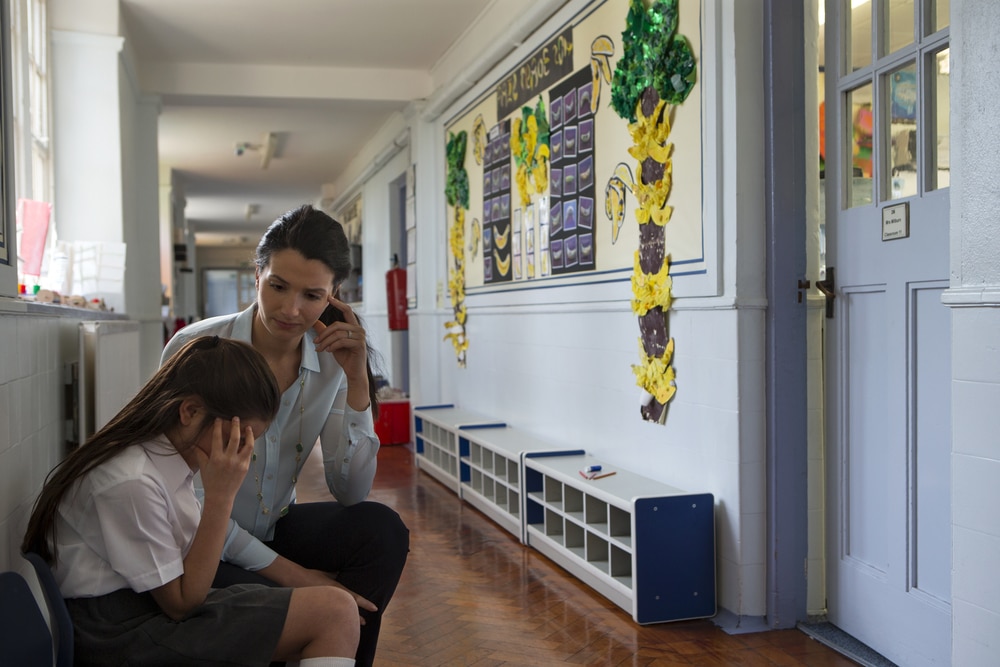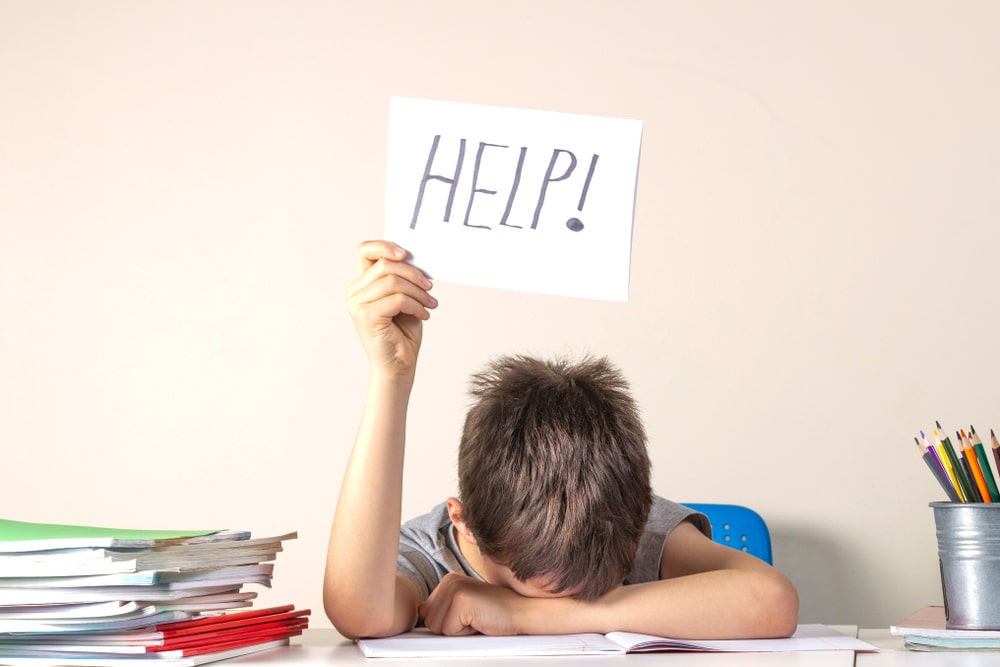10 expert tips for children’s mental health
As world mental health day has passed, it is vital to raise awareness of the difficulties children can have with their mental health. Often, children can’t verbalise or understand their emotions and so can be overlooked as suffering with poor mental health. However, children’s mental health is an issue now more than ever and teachers need to be on hand to support and help them understand feelings and emotions.
To help teachers do this, we have 10 expert tips from fields such as psychology, behavioural health, edtech and teaching. These tips give a great insight into improving children’s mental health.
Help children appreciate and understand feelings
Adults tend to miss the bigger picture to help children find an entire narrative for what they feel. For example, instead of helping children know ‘you’re angry right now’, you would help them express the reason why like ‘you are angry because you were in the middle of writing this task when I told you to stop and hand it in.’
When children are helped to appreciate and understand not only their own feelings but also reasons why and their own stories, they can feel comfortable in their own skin.
Dr Claudia Luiz: Psychoanalyst and award-winning writer on psychoanalytics, New York.
Create a safe space
Offer children a safe space. Teachers and parents can offer children five minutes of child-directed play each day – during this time the adult should not command, criticise, or question the child.
Rather, the adult should only follow the child’s lead and allow the child to pick the activity and offer specific praise.
Dr Tamar Blank: Licensed psychologist in New York & New Jersey, Riverdale Psychology.
Create activities around social dilemmas
Improve children’s social skills and devise scenes that might typically come up in children’s friendships. This is essential to do at a time where social interaction is lacking due to the set back the pandemic caused and the rise of social media. Creating a series of moralistic tales put children into various social settings so they can improve their social skills.
Titles such as ‘The girl who couldn’t share’ and ‘the boy who was too shy to talk’ help develop children’s empathy skills. It also improves their listening and responding skills as well as helping them to work collaboratively and enable them to better communicate their feelings.
Suzy Duxbury: Principal of Dramatis community drama school.
Show empathy in difficult situations
Empathy in difficult moments can open the door to what is going on underneath. Usually, sadness or fear is hidden beneath anger. When we empathise and listen deeply, we have a chance to truly connect with kids.
This doesn’t mean parents condone inappropriate behaviour or do not set limits. It means we recognise their discomfort and make sure they feel heard.
Jessica Speer: Author –BFF or NRF (Not Really Friends)? A Girls Guide to Happy Friendships
Validate and acknowledge emotions
Validate and acknowledge their emotions and struggles. Be sure to share any relevant and relatable experiences. Use an example of a famous person who has similarly struggled in order to put their situation into context. This will help them relate to people they look up to.
Explain that you have also had moments in your life when you felt low in mood and therefore you can somehow understand how it feels to be in a very low mood.
Dr Maite Ferrin: Consultant psychiatrist at Re:Cognition Health

Let them make mistakes
Let your child do things on their own that are just outside of their current ability level. By stumbling a little along the way, they will understand that mistakes are ok and that they are part of learning.
If you, as a parent or teacher, allow mistakes, you are setting the child up to have resiliency and the ability to try new things without fear of failure. Resiliency is what allows children and adults to bounce back from the difficulties that arise in life.
Kathryn Ely: Counsellor & anxiety therapist, Empower Counselling
Use humour
One aspect of children’s mental health and wellbeing that is generally overlooked is the development of a sense of humour. Humour and mental health (wellbeing) is not a new idea but mostly overlooked.
Visualise favourite humorous moments. Invite the child to visualise and share funny moments. (Ones where he/she laughed so hard he/she fell down, cried, or peed his/her pants.) These can be real situations or can be situations seen on sitcoms or created from stories, jokes, cartoons, etc. Anything that makes them laugh.
Steven M. Sultanoff, PhD: Clinical psychologist, MyCMEmatters
Give them a version of what they want
The most important thing we do is allow kids to have their way (or a version of what they want) when they hear no and respond appropriately. Showing a child that remaining calm and using their words can lead to positive outcomes and will increase the likelihood that they will remain calm and use their words in the future.
An occasional “You know what, I’m really impressed with the deep breaths you took after I said that we were not going to the sweets shop”, or “What do you say we have a sweet when we get home?”, can completely change a child’s reaction and emotional well-being around hearing and accepting no.
Kellie Syfan: Behavior analyst and consultant, Applied Behavioural Happiness
Consider how you react
How an adult reacts the first time a young person discloses important information about how they are feeling can affect whether they go on to disclose sensitive information in the future. If adults get cross or invalidates their feelings, a child is likely to bottle up emotions rather than speaking out.
If a child tells you they feel down and rubbish, act in a calm manner and listen to what they are saying. Give them as much opportunity as possible to talk to help them feel comfortable. This will make them feel safe and at that moment in time, this is what they need.
Dr Hayley Van Zwanenberg: Consultant child and adolescent psychiatrist at Priory Wellbeing Centre, Oxford
Be approachable
Make sure they know that you are always happy to listen, and happy to listen about anything. All too often today’s kids can suffer from a sense of detachment from their parents, unwilling to express themselves openly for fear of being uninteresting or misunderstood.
Children should be encouraged – not forced – to talk about everything – feelings, anxieties, wants, and needs – from the earliest age in the comfortable certainty that the parents want to do so. Just remember, if they don’t want to talk just yet, be patient. They should feel completely comfortable expressing themselves without being worried that they will be ignored, chastised, or corrected for doing so.
Leo Young: Creator of Optimized Family
Children can sometimes find it difficult to verbalise their feelings. Reach out to them and be approachable. Looking after children’s mental health and wellbeing is vital, so be sure to be on hand to support them.
If you want more information on children’s mental wellbeing, then check out our previous blog on supporting children’s mental health in school.






